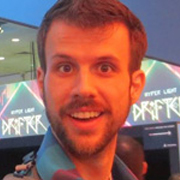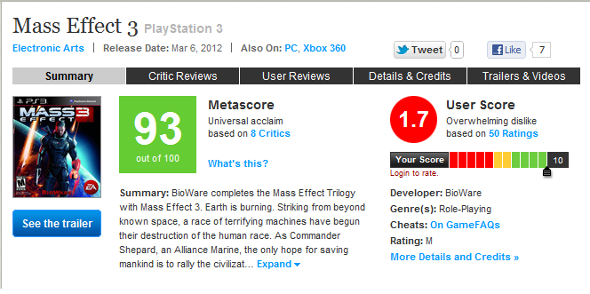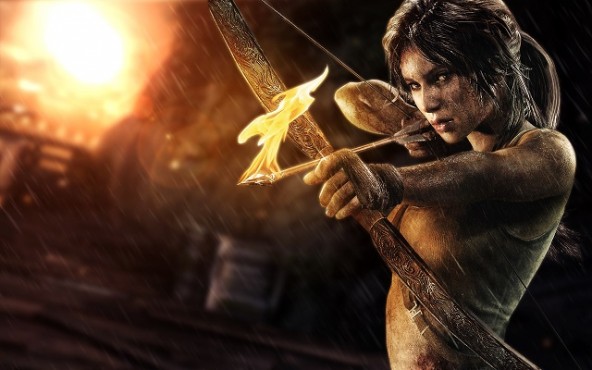Do Conflicts of Interest Matter Anymore?
There's a problem, the elephant in the room, that nobody wants to address. The accusations of games journalism playing fast and loose with a dubious set of ethics, is bubbling over. In recent years, the elephant is screaming, wildly knocking over furniture, and it's starting to become impossible to ignore.
This topic came to head recently with the scandal involving allegations of non-consensual sex, abuse, manipulation, and nepotism amongst game developer Zoe Quinn, Quinn's former boyfriend, Eron Gjoni and Kotaku reporter Nathan Grayson. Putting aside the sordid accusations, the he-said-she-said boyfriend-girlfriend allegations of infidelity, and the deplorable abuse that's been heaped on Quinn since the story broke, the question remains: Is games journalism irrevocably entwined with conflicts of interest? Or is that at least the perception people have?
For journalists to remain an impartial party, they must avoid at all costs mixing personal and professional relationships. When that is unavoidable, transparency of the relationship must be announced. Disclosure to the audiences of any biases that could be perceived to influence reporting is necessary to maintain the trust of the audience.
Conflicts of interests can take many shapes and forms; they are not just limited to romantic relationships, but can arise from friendships and family relationships as well. Issues can also arise when there is a financial gain connected to press coverage, whether the gain is for the journalist themselves, or for people he or she personally knows. There is a clear conflict of interests if journalists are accepting gifts from parties they are covering. Time and time again these issues involving clear conflicts of interests are seen in games journalism.
That isn't to say there aren't those who've taken notice of the issue and attempted to spur on discussion, but when this line of ethics is re-established by those who critique games journalism, most often than not, they receive retaliation.
Robert Florence's Lost Humanity 18: A Table of Doritos, details Geoff Keighley's role as someone who simultaneously promoted cheesy Doritos while being considered by Harvard Business as a leader in his field. Keighley was quoted as saying, “There's such a lack of investigative journalism. I wish I had more time to do more, sort of, investigation.” Yet, there he is pictured, promoting Doritos and Mountain Dew: a clear conflict of interests.
Florence also published tweets (That have since been removed from the article.) from games journalist Lauren Wainwright saying ,“Urm… Trion were giving away PS3s to journalists at the GMAs. Not sure why that’s a bad thing?” Following up with the tweet, “Lara header, two TR pix in the gallery and a very subtle TR background. #obsessed @tombraider”.
There seems to be a very clear conflict of interest that Wainwright has with Square Enix, the publisher of Tomb Raider, seeing how she listed doing freelance work for Square Enix. Instead of addressing the extravagant gifts and promotion of a product, Intent Media, owner of MCV, Wainwright's employer, sent a complaint to Eurogamer resulting in Wainwright being removed from the article, Florence being hit with libel complaints, and subsequently Florence leaving Eurogamer.
Erik Kain of Forbes summarized the Florence situation as "The fact of the matter is, articles like Florence’s and the fallout of that article do point to a widespread, deeply entrenched problem facing the gaming press and its lack of a uniform ethical code that often serves or at least appears to serve game publishers first and consumers second.”
Perception is everything. Whether or not there are favors being given, the perception is that there could be. The lack of upfront transparency continually undermines the credibility of any organization through the eyes of gamers. It's ludicrous to suggest that Zoe Quinn herself set back the role of women in the gaming industry, as some purport. It would be more accurate to say Gamergate set the entire gaming industry back; it set back the public's perception of games journalism and game development.
These events have given a perception that neither sector of the industry can be trusted to behave in a professional and ethical manner. The lack of criticism coming from within the industry about the unethical behavior, is itself, unsettling. The retaliation against those who point out the unethical behavior, is all the more disturbing.
Note: This is a charged topic due to the personalities involved and the allegations levied against them. Keep it civil, keep personal attacks out of it, and talk about the topic at hand rather than the tabloid-soap-opera details.
About the Author

Michael Dunaway has been part of the MMOBomb team for years and has covered practically every major Free-to-Play MMO title since 2009.
More Stories by Michael DunawayRead Next

Death was waiting for me. No sooner do I spawn into H1Z1 for the first time than I’m set upon by a pair of zombies, looking to turn me into their personal hors d’oeuvre. Hor d’oevres? Whatever.
You May Enjoy

The event is free and will take place in Los Angeles.

Complete the simulation and earn the game’s first Honoria.

The new mode is faster and unpredictable.

You know the Merc with the Mouth couldn’t resist the chaos.



Never been to Iraq? As long as you can write authentically as if you had been there, you don't have to write about real events in order to be taken seriously.
Nobody looks at game reviews for the ratings nowadays though. Anything going on there is a trivial matter. The real opinion-forming these days happens on youtube channels or through other popular sites like Reddit or Twitch. Want to sell that new game?
Reach a hand full of green out to the cynical brit or pewdiepie and you might coincidentally find to have some mutual interests.
The Quinnspiracy was just the straw that broke the camels back.
It seems that in today's worlds ethics mean very little specially when it comes to making money.
TLDR: don't feed the pigeons and they will go away.